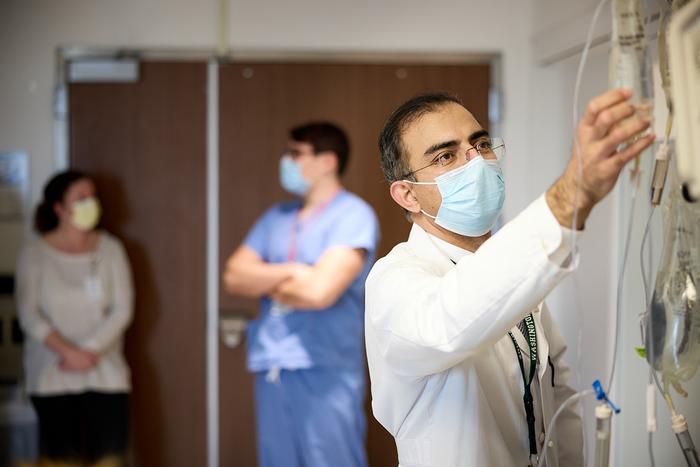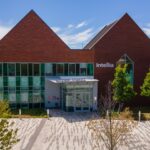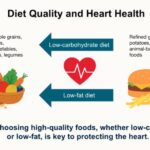A new type of allogeneic CAR-T cell immunotherapy that targets aggressive blood cancers has shown promising results alongside manageable side effects, according to the results of an international Phase 1/2 clinical trial led by researchers at Washington University School of Medicine in St. Louis.
The dose-escalating clinical trial evaluated the safety and efficacy of the CAR-T cell therapy WU-CART-007, which is specifically designed to attack cancerous T cells, in 28 participants diagnosed with T cell acute lymphoblastic leukemia (T-ALL) or T cell lymphoblastic lymphoma (T-LBL). The trial participants had run out of treatment options after standard therapy proved ineffective. The reported study results showed that most of the patients who received the full dose of the new immunotherapy achieved full remission of their cancer.
“For patients with these rare and aggressive cancers, who have no other options, this has the potential to become a transformative advance in the field,” said John F. DiPersio, MD, PhD, the Virginia E. & Sam J. Golman Professor of Medicine at WashU Medicine, who first developed the therapy in his lab. “The trial demonstrated a high likelihood of response to the therapy and even remission. While larger studies with more patients and longer follow-up are necessary before the researchers can determine whether this new therapy could be curative on its own, DiPersio commented, “this CAR-T cell treatment shows promise in becoming a ‘bridge-to-transplant’ therapy for patients who would otherwise not be eligible for stem cell transplantation, which is the only potentially curative treatment for these blood cancers.”
DiPersio is senior author of the team’s published report in Blood, titled “Phase 1/2 Trial of Anti-CD7 allogeneic WU-CART-007 in patients with relapsed/refractory T-cell malignancies.” While acknowledging that interpretation of their study results is limited by small sample size and lack of a comparator arm, the investigators concluded, “This program has the potential to advance an off-the-shelf allogenic CAR-T cell therapy and provide a new treatment option for relapsed CD7-positive T-cell malignancies such as T-ALL/LBL, which represent a significant unmet medical need.”
“Relapsed/refractory (R/R) T-cell acute lymphoblastic leukemia (T-ALL) and lymphoblastic lymphoma (T-LBL) carry a dismal prognosis with limited effective therapeutic options,” the authors wrote. Standard chemotherapy treatment results in “poor outcome,” and the median overall survival is just 6 months among people who respond. WHO classifies T-ALL and T-LBL as the same disease, the authors noted, and the clinical approach to treatment of both is similar. “There is no standard of care treatment for adult patients with relapsed disease,” they noted, “.. thus, there is an unmet medical need …” About 1,000 people are diagnosed with these cancers annually in the U.S. If the cancer does not respond to treatment or returns after initial treatment, patients survive on average only six months, and less than 7% surviving to the five-year mark.” No treatment besides nelarabine has been approved in this setting since 2005, with unsatisfactory response rates,” the investigators continued.
Generated from CRISPR-edited healthy donor T cells, WU-CART-007 is an allogeneic CD7-directed, genetically modified, fratricide-resistant CAR-T cell product that is under development for treating CD7-positive hematologic malignancies. “Proof-of-concept of this approach, allogeneic-sourced CD7 targeting CAR-T cells, has been previously reported in small single site studies,” the researchers noted.
The newly reported trial included 28 adult and adolescent patients with T cell acute lymphoblastic leukemia and T cell lymphoblastic lymphoma that either returned after several lines of therapy or that did not respond to initial treatment. The study was conducted in Australia, Europe and multiple sites across the U.S. For the St. Louis site, the trial was conducted at Siteman Cancer Center, based at Barnes-Jewish Hospital and WashU Medicine.
The trial design included a dose-escalation phase, which determined the recommended dose of therapeutic cells that patients would receive for the second phase of the trial. Dose escalation helps determine the largest dose of CAR-T cells that patients can receive and still have manageable side effects. Thirteen patients received the full recommended phase 2 dose (RP2D) of 900 million CAR-T cells after undergoing a procedure to clear their own immune cells. This procedure, called lymphodepletion, reduces immune cells, making room for the new therapeutic T cells to establish themselves and expand in number. Two of these patients died from their cancer or treatment complications, such as infection, during the study period.
Of 11 patients who could be evaluated after treatment, the overall response rate was 90.9%, meaning 10 patients either showed no signs of cancer after treatment or their cancer cell burden was reduced significantly. Eight out of 11 patients (72.7%) achieved complete remission. At the study’s data cut off, six patients who underwent a transplant remain in remission, with no evidence of disease, six to 12 months later.
“These response and remission rates—ranging from 70%-90% of patients—are much higher than we would expect from standard-of-care for this cancer type, which typically leads to remission in only 20%-40% of patients,” said first and corresponding author Armin Ghobadi, MD, a professor of medicine and clinical director of the Center for Gene and Cellular Immunotherapy at WashU Medicine. “These responses are remarkable because the patients in this trial had run out of options. They had very aggressive cancers return after several lines of therapy, including several who relapsed after an earlier stem cell transplant.”
Most patients (88.5%) experienced cytokine release syndrome as a side effect of the immunotherapy, and these cases were predominantly mild or moderate. Cytokine release syndrome is a common side effect of CAR-T cell therapy that occurs when large numbers of immune cells release chemicals that cause a full-body inflammatory response. About 19% of the patients experienced more-severe cytokine release syndrome. A small number of patients experienced rarer side effects, such as neurotoxicity syndrome and low-grade graft-versus-host disease. Adverse events were managed with additional therapies. In their paper, the authors stated, “WU-CART-007 at the RP2D demonstrated a high response rate in patients with relapsed/refractory T-ALL/LBL and has the potential to provide a new treatment option.”
The immunotherapy evaluated in the trial is considered a “universal” CAR-T cell therapy because—harnessing CRISPR gene editing technology—it can be produced from cells donated by any healthy individual and used to treat any patient with a T cell cancer. In contrast, approved CAR-T cell therapies are adapted from the patient’s immune cells. The cells must be collected from the patient and shipped to a manufacturing facility to be made and then shipped back, a process that typically takes three to six weeks. In contrast, universal CAR-T cell therapies can be made ahead of time, stored frozen and be readily available “off-the-shelf,” greatly reducing the wait time before therapy can begin.
Using CRISPR gene editing tools, the production process deletes the T cell receptor from the donor cells, greatly reducing the risk of graft-versus-host disease, in which donor T cells attack healthy tissue. Removing another key antigen also prevents the CAR-T cells from attacking one another. The types of rare cancers in this study presented a unique challenge: the therapeutic cells and the cancer cells are both T cells, so steps must be taken to prevent the therapeutic T cells from mistaking one another for the cancer and causing CAR-T cell fratricide. All other approved CAR-T cell therapies target B cell cancers, which do not have this T cell self-targeting complication.
After using CRISPR gene editing to modify the CAR-T cells to prevent these harmful side effects, the cells are further engineered to target a protein called CD7 on the surface of cancerous T cells to then destroy the cancer. In summary, the authors wrote, “To manufacture WU-CART-007 drug product, T cells generated from healthy donors are CRISPR-Cas9 edited to delete CD7 and T-cell receptor alpha constant gene (TRAC), transduced with a second-generation CAR targeting CD7, expanded, purified to remove residual T-cell receptor ⍺/β-positive cells, and cryopreserved.”
WU-CART-007 is in development by Wugen, a WashU biotech startup company founded by DiPersio and other WashU Medicine investigators, including co-author Matthew Cooper, PhD, who cofounded the company when he was on the WashU Medicine faculty and now serves as Wugen’s chief scientific officer. “A larger international clinical trial of this therapy is already underway,” DiPersio said. “We must complete this larger trial first, but we are hopeful this universal CAR-T cell therapy can become an approved treatment for patients with deadly T cell cancers.”



